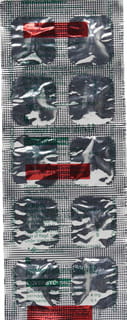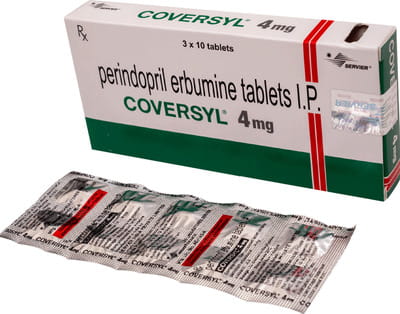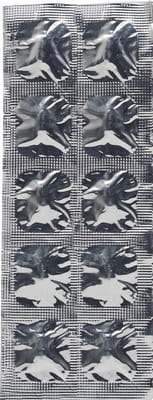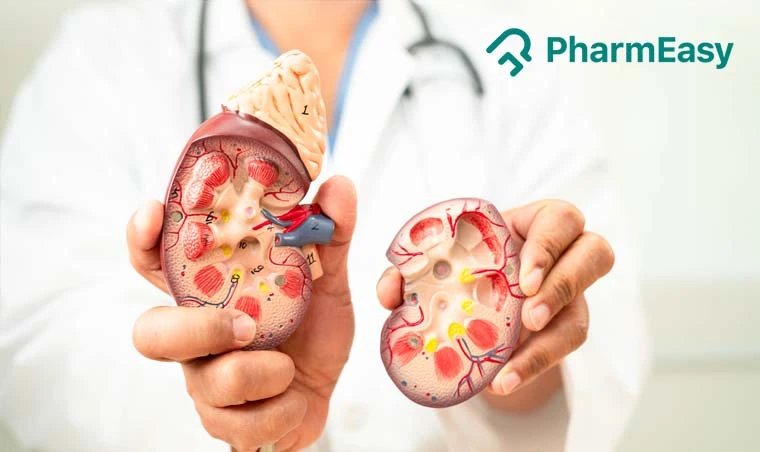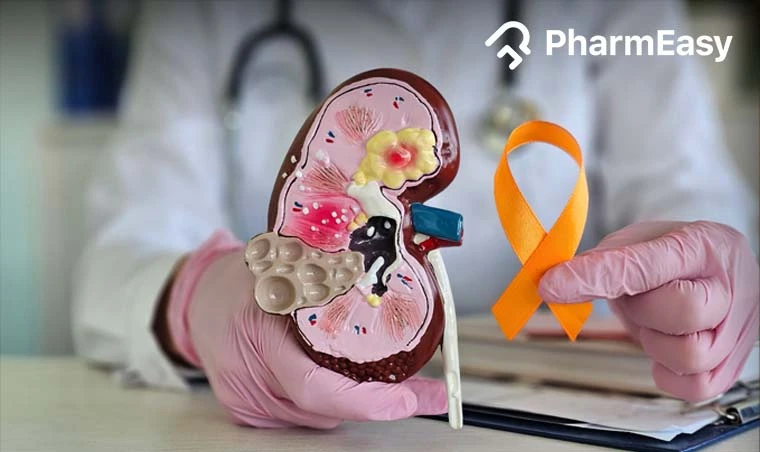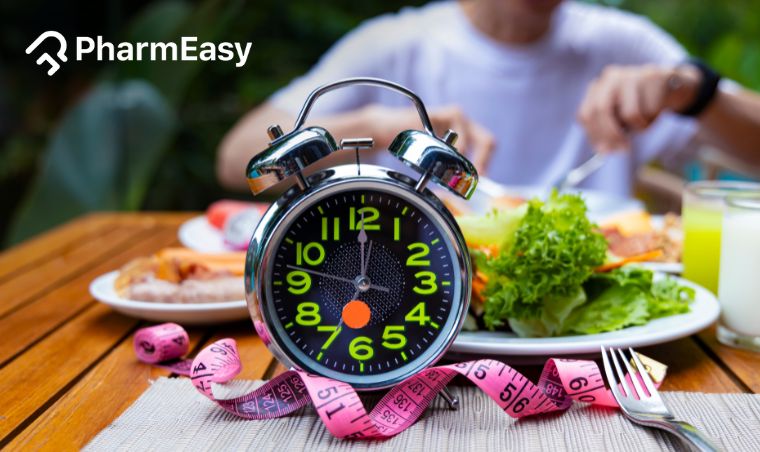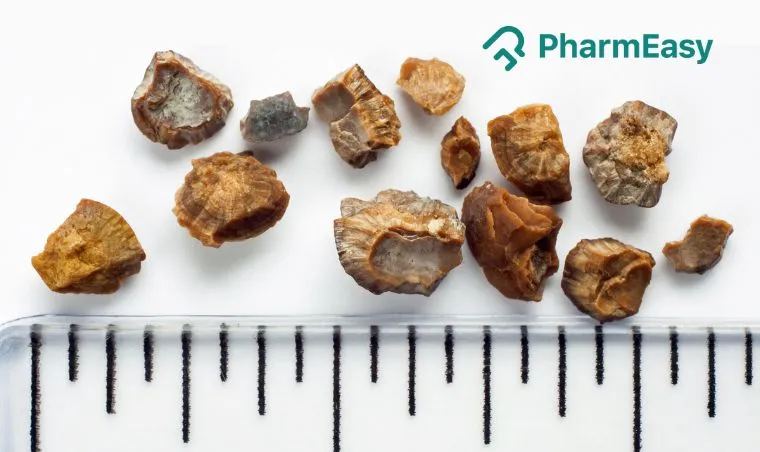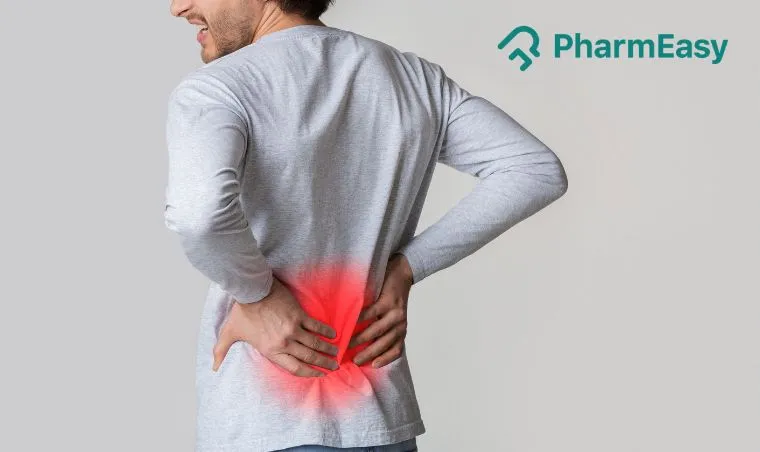Coversyl 4mg Tablet
Description
Coversyl tablet is an ACE inhibitor used to treat high blood pressure and heart failure and reduce the risk of heart attack or stroke. It can be taken alone or with other medicines, should be taken on an empty stomach, and at the same time each day. Continuing regular use is important, even if you feel well. Lifestyle changes such as exercise, weight loss, and reducing salt and alcohol intake can also help lower blood pressure.
Common side effects of Coversyl tablet include decreased blood pressure, cough, increased potassium levels, fatigue, weakness, and dizziness. It's important to consult your doctor if you experience any bothersome side effects. Consult your doctor before taking this medicine if you have kidney or liver problems or if you are pregnant or breastfeeding. Regular check-ups may be required while taking this medicine.
Product Summary
| Offer Price | ₹152.87 |
| You Save | ₹50.96 (25% on MRP) |
| Contains | Perindopril(4.0 Mg) |
| Uses | Hypertension, Prevention of heart attack and stroke, Heart failure |
| Side effects | Cough Dizziness Hypotension (low blood pressure) Headache Back pain |
| Therapy | ANTI-HYPERTENSIVE |
Uses
Contraindications
- Allergy to perindopril or any other ingredients of this medicine.
- Previous experience of symptoms like wheezing, facial, tongue, or throat swelling, intense itching, or severe skin rashes with prior ACE inhibitor treatment or in familial history (angioedema).
- Pregnancy beyond 3 months.
- Diabetes or impaired kidney function and treatment with Aliskiren-containing blood pressure-lowering medication.
- Undergoing dialysis or any other form of blood filtration.
- Kidney issues involving reduced blood supply (renal artery stenosis).
- Taking sacubitril/valsartan for chronic heart failure is associated with an increased risk of angioedema.
Side effects
- Headache
- Dizziness
- Vertigo
- Vision disturbances
- Tinnitus (sensation of noises in the ears)
- Cough
- Shortness of breath (dyspnoea)
- Gastrointestinal disorders (nausea, vomiting, abdominal pain, taste disturbances, dyspepsia or difficulty of digestion, diarrhoea, constipation)
- Allergic reactions (such as skin rashes, and itching)
- Muscle cramps
- A feeling of weakness
- Hypotension
Precautions and Warnings
Other General Warnings
- You have aortic stenosis (narrowing of the main blood vessel leading from the heart) or hypertrophic cardiomyopathy (heart muscle disease) or renal artery stenosis (narrowing of the artery supplying the kidney with blood)....
- You have any other heart or liver problems.
- You have kidney problems, or if you are receiving dialysis.
- You have abnormally increased levels of a hormone called aldosterone in your blood (primary aldosteronism).
- You suffer from a collagen vascular disease (disease of the connective tissue) such as systemic lupus erythematosus or scleroderma.
- You have diabetes.
- You are on a salt-restricted diet or use salt substitutes which contain potassium.
- You are to undergo anaesthesia and/or major surgery.
- You are to undergo LDL apheresis (which is the removal of cholesterol from your blood by a machine).
- You are going to have desensitization treatment to reduce the effects of an allergy to bee or wasp stings.
- You have recently suffered from diarrhoea or vomiting or are dehydrated.
- You have been told by your doctor that you have an intolerance to some sugars.
- You are taking any of the following medicines used to treat high blood pressure: an angiotensin II receptor blocker (ARB) (also known as sartans—for example, valsartan, telmisartan, irbesartan), particularly if you have diabetes-related kidney problems....
- If you are taking any of the following medicines, the risk of angioedema may be increased: racecadotril, medicines used for organ transplant rejection or cancer, Vildagliptin for diabetes, and Sacubitril (combined with valsartan) for long-term heart failure....
Pregnancy
Breast Feeding
Driving
Alcohol
Directions for Use
Storage and disposal
- Store at room temperature
- Keep Coversyl out of reach of children
Quick Tips
- Coversyl tablet may cause dizziness during the initial days of use. To minimize this, be cautious when transitioning from sitting or lying down to standing. Taking the medication at bedtime can also help reduce daytime dizziness. ...
- If you experience a persistent cough or throat irritation, inform your doctor. This medication may elevate potassium levels in the bloodstream. Refrain from using potassium supplements and consuming potassium-rich foods such as bananas and broccoli. ...
- If you are pregnant, planning a pregnancy, or breastfeeding, be sure to inform your doctor.
Dosage
Overdose
Missed a Dose
Mode of Action
How Does It Work?
Interactions
Interactions with other medicines
- Inform your doctor or pharmacist about all other medications you are taking as they may interact with Perindopril. Your doctor may need to adjust your dosage or take other precautions.
- Other medicines for high blood pressure, including angiotensin II receptor blockers (ARB), aliskiren, or diuretics (medicines which increase the amount of urine produced by the kidneys)
- Potassium supplements (including salt substitutes), potassium-sparing diuretics, and other medicines that can increase the amount of potassium in your blood (e.g., trimethoprim and co-trimoxazole for bacterial infections; ciclosporin, an immunosuppressant used to prevent organ transplant rejection; and heparin, a blood thinner)...
- Non-steroidal anti-inflammatory drugs (e.g., ibuprofen) for pain relief or high-dose aspirin
- Medicines to treat diabetes (such as insulin or metformin)
- Baclofen (used to treat muscle stiffness in diseases such as multiple sclerosis)
- Medicines to treat mental disorders such as depression, anxiety, and schizophrenia (e.g., tricyclic antidepressants, antipsychotics)
- Lithium for mania or depression
- Allopurinol for the treatment of gout
- Immunosuppressants (medicines that reduce the body's defence mechanism) used to treat autoimmune disorders or following transplant surgery (e.g., ciclosporin, tacrolimus)
- Trimethoprim (for the treatment of infections)
- Estramustine (used in cancer therapy)
- Procainamide (for the treatment of irregular heartbeat)
- Medicines for the treatment of low blood pressure, shock, or asthma (including ephedrine, noradrenaline, or adrenaline)
- Vasodilators, including nitrates (products that widen the blood vessels)
- Gold salts, especially with intravenous administration (used to treat symptoms of rheumatoid arthritis)
- Medicines most often used to treat diarrhoea (racecadotril)
- Medicines most often used to avoid rejection of transplanted organs (sirolimus, everolimus, and other mTOR inhibitors)
- Sacubitril/valsartan (used to treat long-term heart failure)
Content Details
Dr. Nikita Toshi
BDS (Bachelor of Dental Surgery), WHO FIDES member
Dr. Ritu Budania
MBBS, MD (Pharmacology)
References
Did you find this medicine information helpful?
Please rate your experience
